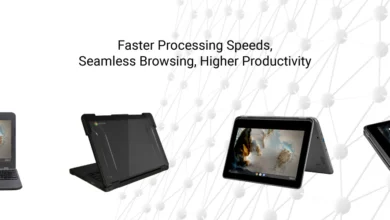If you’re a freelancer, independent contractor, or business that pays non-employees, you’ve likely encountered Form 1099 NEC or 1099 MISC. Understanding the difference between 1099 NEC vs 1099 MISC is essential for staying compliant with IRS regulations and avoiding costly filing errors.
Both forms are used to report payments made to non-employees, but they serve distinct purposes. The IRS reintroduced Form 1099-NEC in 2020 to separate non-employee compensation from other types of income previously reported on Form 1099-MISC.
In this article, we’ll break down the differences between these two forms, explain when and how to use them, and help you determine which one applies to your specific tax situation.
What Is Form 1099 NEC?
Definition and Purpose
Form 1099-NEC (Nonemployee Compensation) is used to report payments of $600 or more made to independent contractors, freelancers, or other non-employees for services rendered during the tax year.
Who Uses Form 1099 NEC?
This form should be used by businesses, nonprofits, and government entities when they:
- Pay independent contractors
- Hire freelance workers or consultants
- Use gig workers or temporary help not classified as employees
What Counts as Nonemployee Compensation?
The IRS defines nonemployee compensation as:
- Payments for services performed by someone not on your payroll
- Payments totaling $600 or more in a calendar year
- Payments made in the course of your trade or business
What Is Form 1099 MISC?
Definition and Purpose
Form 1099-MISC (Miscellaneous Income) is used to report various types of income not covered by other 1099 forms. Before 2020, it was the standard form for reporting nonemployee compensation, but that role has now shifted to the 1099-NEC.
Common Uses of 1099 MISC
Form 1099-MISC is now used to report:
- Rent payments
- Prizes and awards
- Royalties
- Medical and health care payments
- Payments to attorneys (in some cases)
- Crop insurance proceeds
- Other miscellaneous income
Thresholds for Filing
In general, you must issue a 1099-MISC if you’ve paid:
- At least $600 for rents, prizes, services, etc.
- At least $10 in royalties or broker payments in lieu of dividends or tax-exempt interest
1099 NEC vs 1099 MISC: Key Differences
Here is a breakdown of the main distinctions between Form 1099 NEC vs 1099 MISC:
| Feature | 1099 NEC | 1099 MISC |
|---|---|---|
| Purpose | Report nonemployee compensation | Report miscellaneous types of income |
| Box for Entry | Box 1: Nonemployee compensation | Box 1–10: Depending on income type |
| Reintroduced Year | 2020 (IRS revived the form) | In use for decades |
| Filing Deadline (to IRS) | January 31 | February 28 (paper), March 31 (e-file) |
| Who Files | Businesses paying freelancers, etc. | Businesses making other types of payments |
| Minimum Amount to Report | $600 | $600 (for most), $10 (for royalties) |
When to Use 1099 NEC
You should file Form 1099-NEC if all of the following apply:
- You paid $600 or more in the tax year.
- The payment was for services (not products or goods).
- The person or business is not an employee.
- The payment was made in the course of your business.
Examples include:
- Hiring a freelance graphic designer
- Paying a consultant for business advice
- Compensating a writer for content creation
When to Use 1099 MISC
Form 1099-MISC should be used when:
- You paid rent for business property or equipment
- You awarded a prize or bonus unrelated to work performed
- You paid royalties for content or intellectual property
- You reimbursed medical and healthcare costs
- You issued payments related to legal settlements
How to File Forms 1099 NEC and 1099 MISC
Filing Requirements
- Send a copy to the recipient (contractor or vendor) by January 31.
- File with the IRS:
- 1099-NEC: Due January 31 regardless of filing method.
- 1099-MISC: Due February 28 (paper) or March 31 (e-file).
Information Needed
For both forms, you’ll need:
- Payer’s information (your business)
- Recipient’s information (name, address, and TIN)
- Total amount paid
- Nature of the payment
Make sure the recipient has completed Form W-9, which provides their Taxpayer Identification Number (TIN).
Penalties for Misfiling or Missing the Deadline
Failing to file the correct form or missing deadlines can result in IRS penalties, which vary based on how late you are:
- Within 30 days: $60 per form
- After 30 days but before August 1: $120 per form
- After August 1 or not at all: $310 per form
- Intentional disregard: $630+ per form
Accurate classification between 1099 NEC vs 1099 MISC is critical to avoid these fines.
Common Mistakes to Avoid
- Using the wrong form: Nonemployee compensation must go on 1099-NEC, not 1099-MISC.
- Missing deadlines: The due dates for 1099-NEC and 1099-MISC differ.
- Not collecting W-9s: Always get W-9s before issuing payments.
- Reporting reimbursed expenses: Do not report properly documented reimbursements.
FAQs: 1099 NEC vs 1099 MISC
Do I need to file both 1099-NEC and 1099-MISC for the same contractor?
No. If you’re reporting nonemployee compensation, use only Form 1099-NEC. Use Form 1099-MISC only if you also paid the contractor for other purposes like rent or awards.
Can an individual receive both forms?
Yes, but for different reasons. For example, someone could receive a 1099-NEC for services rendered and a 1099-MISC for rent payments made to them in the same year.
Are there exceptions to the $600 rule?
Yes. Payments made via credit card or payment processors (like PayPal or Venmo) are typically reported on Form 1099-K by the processor, not by you.
Do I need to issue 1099 forms to corporations?
Usually no, unless the corporation is providing legal or medical services. Exceptions apply, so review IRS guidance if unsure.
Conclusion
Understanding the difference between 1099 NEC vs 1099 MISC is crucial for proper tax reporting and compliance. The IRS separates nonemployee compensation (reported on Form 1099-NEC) from miscellaneous income (reported on Form 1099-MISC) to improve clarity and enforcement.
If you’re a business, always review the type of payment you’re making before issuing one of these forms. For independent contractors and freelancers, receiving the correct form ensures your income is reported accurately and can help you avoid unexpected tax liabilities.
Need help organizing your tax reporting process or learning more about 1099 forms? Bookmark this guide and stay compliant year-round!




